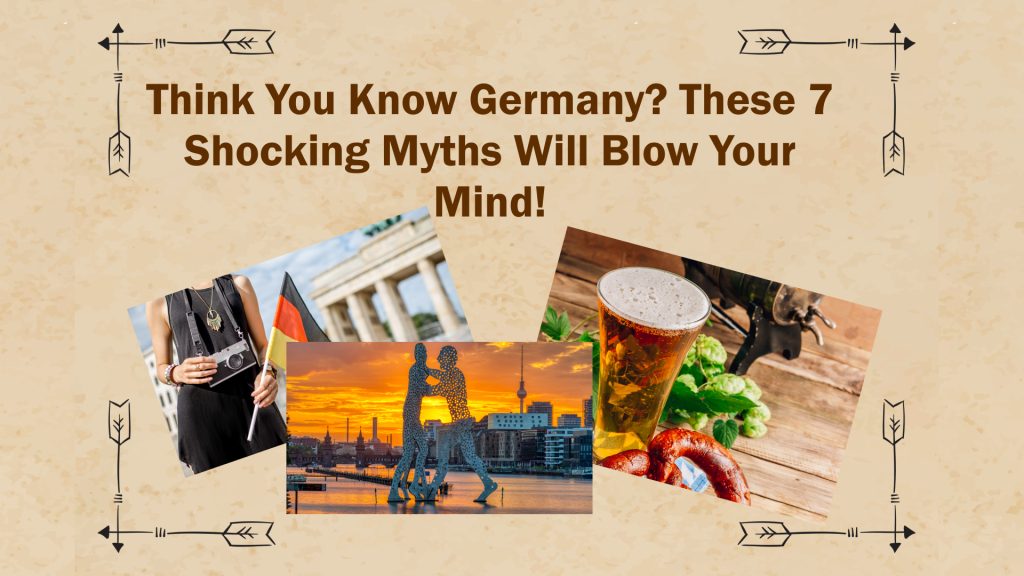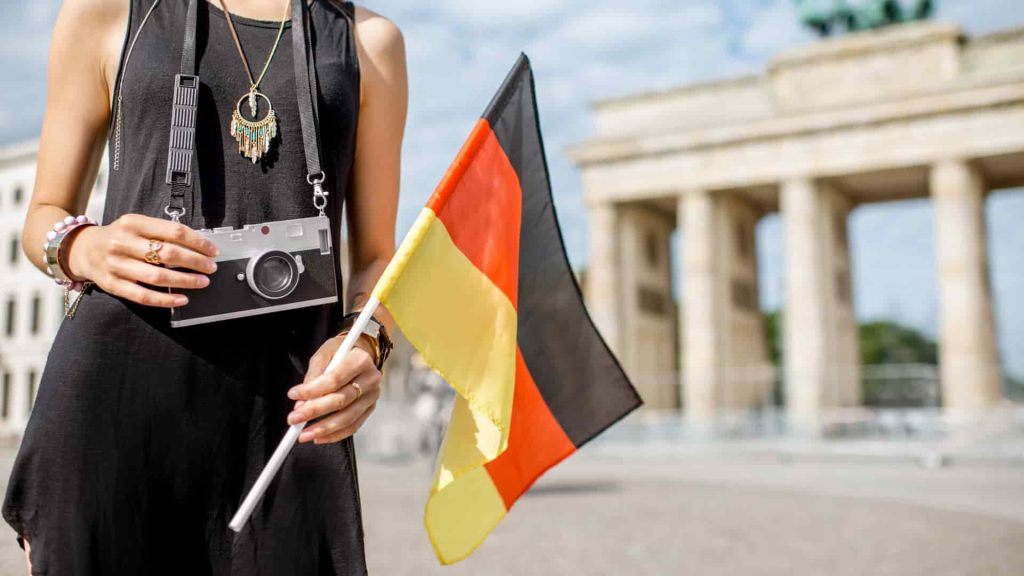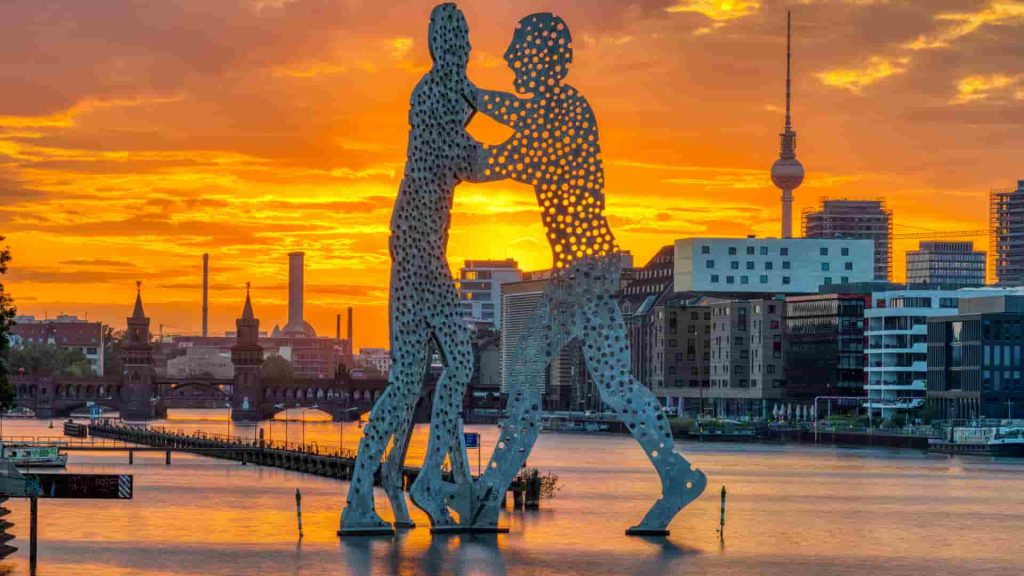
Have you ever heard the one about Germans being as frosty as their winters, or the idea that they’re all work and no play? Let’s be real for a moment. Anyone who’s had the pleasure of a hearty German dinner or a relaxed chat in a cozy Berlin café might beg to differ. So, why do these clichés stick around like that last stubborn pretzel crumb on your plate?
Here’s the scoop: behind that initial, seemingly cool exterior often lies a depth of warmth and a zest for life that can catch you pleasantly off guard. And while it’s true that Germans have an admirable knack for efficiency, it’s not all about to-do lists and ticking clocks. Believe it or not, kicking back and soaking up the good times is high on the agenda here, with some of the most generous vacation policies you’ll find anywhere.
So, how about we dust off those old stereotypes and take a fresh look together? Ready to dive into the heart of German culture and discover what really makes it tick?
Both an introvert and an expat in a foreign country where I barely speak the language is difficult. I am not going to lie, I had tried to read as much as I could about German culture, consumed as much infomercials and German media as I possibly could.
As every other human being, I also harbored a few personal biases. I debunked them for myself a while ago, but this is my attempt at doing the same for you guys as well.
So, let’s get straight into it! Shall we?
6 Biases and Prejudices About German Culture Worth Debunking
Ever wonder how cultural myths get whipped up, like a batch of mysterious, ancient folklore cookies? To be honest, it’s rather easy to start a misconception.
Us human beings are gossip mongers. Someone takes a tiny crumb of truth, slathers it with a thick layer of assumption, and then sprinkles on a dash of hearsay for good measure. Voilà, you’ve got yourself a fresh-baked cultural misconception, ready to be served at the global dinner table.
Your recommended post for the week: A Peek into a Day in German Life

It’s a bit like a game of telephone played across borders and oceans. One person’s offhand comment about their rainy weekend in London morphs into the next person’s “It always rains in England,” and before you know it, you’re packing an ark for your British holiday.
But here’s the kicker: these myths stick because they’re easy, like shortcuts through the complex maze of understanding a whole new culture. They give us a quick label or a neat box to put things in, even if that box is as far from the truth as my grandma’s idea of ‘just a pinch’ of salt. So, next time you hear a cultural cliché, maybe take it with a grain (or pinch) of salt.
#1 Germans Are Unfriendly and Cold
Let’s tackle a biggie: the myth that Germans come off as unfriendly or chilly. Ever wondered where this idea sprang from? It’s likely tied to the German penchant for directness in conversation. While some might interpret this straightforwardness as standoffish, it’s actually a mark of respect and honesty in German culture.
Take my first encounter with a Berliner, for example. At a glance, his straight-to-the-point greeting seemed brisk, a quick ‘Guten Tag’, before he returned back to his morning coffee and paper. I had summoned the courage to walk up to him and ask for a seat at his table in a busy coffee shop I had sauntered into. But as we chatted, his genuine interest and thoughtful responses revealed a warmth that was anything but cold. He quickly closed his paper, set it aside and is probably one of the most empathetic listeners I have ever encountered. It was just wrapped in a no-frills package.

Respect and Privacy: The Unsung Virtues
In German culture, the respect for personal space and privacy is paramount. This cultural trait might be mistaken for coldness, but it’s really about maintaining boundaries and showing consideration for others. When a German doesn’t bombard you with questions or invade your personal bubble upon first meeting, it’s their way of offering you respect, not a cold shoulder.
This understanding of personal space fosters a community where warmth and friendship are extended thoughtfully and sincerely, making those moments of connection all the more special.
Don’t forget to read: How to Rent a Car in Germany?
#2 German Food Is All About Meat and Potatoes
When most people think of German food, images of heaping plates of sausages, sauerkraut, and potatoes often come to mind. Sure, these hearty dishes have their place in German culture, but they’re just the tip of the culinary iceberg.
If you truly want to uncover the labyrinth that is German culture and cuisine, you’ll really need to strap in and step into a very diverse palate. That is, no gagging or eww-ing or making faces at the true marvel you asked for!
Discovering the Delights: Hidden Gems of German Cuisine
- Käsespätzle: Often dubbed the German mac and cheese, this comforting dish features egg noodles lavished in creamy cheese and topped with crispy onions.
- Spreewälder Gurken: These pickles from the Spreewald region aren’t your average gherkins. They’re fermented in wooden barrels with a unique blend of spices, offering a tantalizing taste.
- Maultaschen: Hailing from Swabia, these savory dumplings are filled with a mixture of meat, spinach, bread crumbs, and onions, and can be served in broth or fried with onions.
- Franconian Carp: A delicacy from Franconia, this freshwater fish is traditionally breaded and fried, making for a crispy, flavorful feast.
- Rote Grütze: This refreshing dessert features a mix of red berries thickened with cornstarch or semolina, often served with a dollop of vanilla sauce or cream.

The modern German culture and culinary scene is a vibrant mosaic, influenced by a myriad of international cuisines. From bustling food markets showcasing global flavors to restaurants offering innovative vegetarian and vegan options, Germany’s food landscape is as diverse as it is delicious.
So, while the classic dishes hold their rightful place, the true essence of German culture and cuisine lies in its variety and adaptability.
We think you’ll love this: 7 Best Day Trips from Berlin for History Buffs
#3 Germans Have No Sense of Humor
It’s a common misconception that Germans are all work and no play, their humor as dense as a Black Forest gateau. But let me tell you, German humor is like a finely brewed beer — an acquired taste that’s deeply satisfying once you get it.
I’ll never forget attending a traditional Bavarian comedy show, where the humor was as rich in irony and satire as it was in the local dialect. I sat between a tired looking mother who held on to her baby with all might, mumbling under her breath and an able bodied old man with a warm smile. Sure, I had picked up quite a bit of German on my own, but the show confused me. The comedian’s delivery of his jokes was deadpan and serious. People around me were howling, while I found the sleeping baby more interesting to watch than the show.
Here’s the thing, it’s only a few years down the line that I truly understood. The comedian’s deadpan delivery had had the audience in stitches, but that’s because that’s how the show was designed to be. German humor is, in fact, alive and well, but just served with a side of subtlety.
Laughter in the Limelight: Humor’s Place in German Culture
German media and public life are sprinkled with humor, often in the most unexpected places. From political cabarets that skewer the day’s news with a sharp wit, to popular TV shows that blend comedy with everyday situations, Germans have mastered the art of laughter that makes you think.
Cartoons and comic strips in newspapers often feature a dry, ironic wit, and even German literature isn’t shy about including humor, with authors like Erich Kästner and Heinrich Böll weaving satire into their narratives.

In Germany, humor is not just about the punchline; it’s about the message, the irony, and the clever twist that makes you smirk long after the joke has landed.
#4 Everyone In Germany Drinks Beer and Wears Lederhosen
Ah, the iconic image of a joyous German, stein in hand and snug in Lederhosen, is almost synonymous with Oktoberfest. While this festival is a proud showcase of Bavarian culture, it’s just one thread in the rich fabric of Germany’s diverse traditions.
Lederhosen, those knee-length leather trousers, are indeed a Bavarian specialty, not a nationwide uniform. Similarly, while Germany’s beer culture is celebrated globally — and rightfully so — it’s not the only beverage of choice. From the wine regions along the Rhine and Mosel rivers to the burgeoning craft beer scene in Berlin, the country’s palate is as varied as its landscapes.
Also read: How to Open Your First German Bank Account?
Germany’s cultural calendar is brimming with festivals that highlight the unique customs and traditional attire of different regions:
- Nordic Frisian Festivals: In the north, Frisians celebrate Biikebrennen with large bonfires, marking the end of winter.
- East German Sorbian Easter: The Sorbs, a Slavic minority, don stunning hand-painted eggs and intricate costumes during Easter.
- Rhineland Carnival: This vibrant festival sees the streets come alive with elaborate parades, costumes, and music, a stark contrast to the serene Oktoberfest.
- Swabian-Alemannic Fastnacht: Here, participants don elaborate, hand-carved wooden masks in one of Germany’s oldest carnival traditions.
#5 German Is a Harsh-Sounding Language
The stereotype of German as a harsh, guttural language often stems from its forceful consonants and the portrayal of Germans in old war movies. But is it really the linguistic equivalent of a bristly hedgehog?

Dive into the melodic flow of German spoken in a cozy café in Munich or the rhythmic cadence of a Berlin poetry slam, and you’ll discover a language with a rich tapestry of sounds. German’s diverse dialects, from the sing-song tones of Bavarian to the soft lilting of Low German, showcase a range that can rival any romance language.
Here is a quick and simple example, consider the word “Schmetterling” (butterfly) — its elongated vowels and light ending defy the harsh label. When compared to the straightforwardness of English or the nasal tones of French, German holds its own with a unique cadence and expressiveness.
The key lies in experiencing the language in its natural habitat, where its true melody and charm emerge far from the stereotypes.
#6 Germans Are Obsessed with Rules and Efficiency
The image of Germans as rule-loving, efficiency-obsessed folks is almost as popular as the country’s famed autobahns. Yes, there’s a certain pride in punctuality and a well-oiled plan, but is life in Germany really lived by the stopwatch?
The truth is, Germans have mastered the art of balancing efficiency with an enviable quality of life. Take the widespread respect for Feierabend, the sacred end-of-work day ritual, where tools are downed, and relaxation begins, no matter how tall the to-do list.
I am forced to recall a visit to a Berlin tech start-up. I fully walked in expecting a hive of ceaseless activity. Instead, I found a workspace buzzing with creativity, where flexible hours and regular breaks fueled innovation. People were rushing across the office, peals of laughter that truly took me by surprise and collaborative work culture was the standout.
Here, efficiency wasn’t about chaining oneself to a desk; it was about creating an environment where ideas could flow freely.
This blend of structure and flexibility extends beyond the workplace. From the meticulously planned public festivals that burst with spontaneous joy to the precision-engineered cars that are canvases for cutting-edge design, Germany’s relationship with rules and efficiency is more nuanced than it appears. It’s a culture that values order but understands that the best ideas often come when there’s room to breathe.
Make sure to read: Learning to Love German Winters: 5 Places to Visit in the Winter

A Fresh Lens on Debunked Myths on German Culture
So, what’s the takeaway from our little myth-busting session? If there’s one thing I hope you’ll remember, it’s that Germany is a land of contrasts and surprises, far from the one-dimensional caricatures often painted by outsiders.
Did you ever imagine that beneath the veneer of efficiency, there’s a vibrant culture pulsing with creativity and warmth? Or that the German language, often branded as harsh, can actually sing with a soft, lyrical beauty?
As we’ve seen, diving into the heart of German culture reveals a colorful mosaic of traditions, flavors, and humor. It’s a place where Lederhosen meets cutting-edge fashion, where time-honored recipes are given a new twist by innovative chefs, and where a quiet evening beer comes with its own slice of philosophy.
So, next time you hear someone mention Germany, will you picture a stern-faced, rule-following citizen, or will you think of the laughter-filled streets of Cologne during Carnival, the aromatic bustle of a Berlin food market, or the serene beauty of a Bavarian lake at sunset?
Germany, it turns out, is much like a well-aged Riesling: complex, nuanced, and full of unexpected delights. Prost to that!




